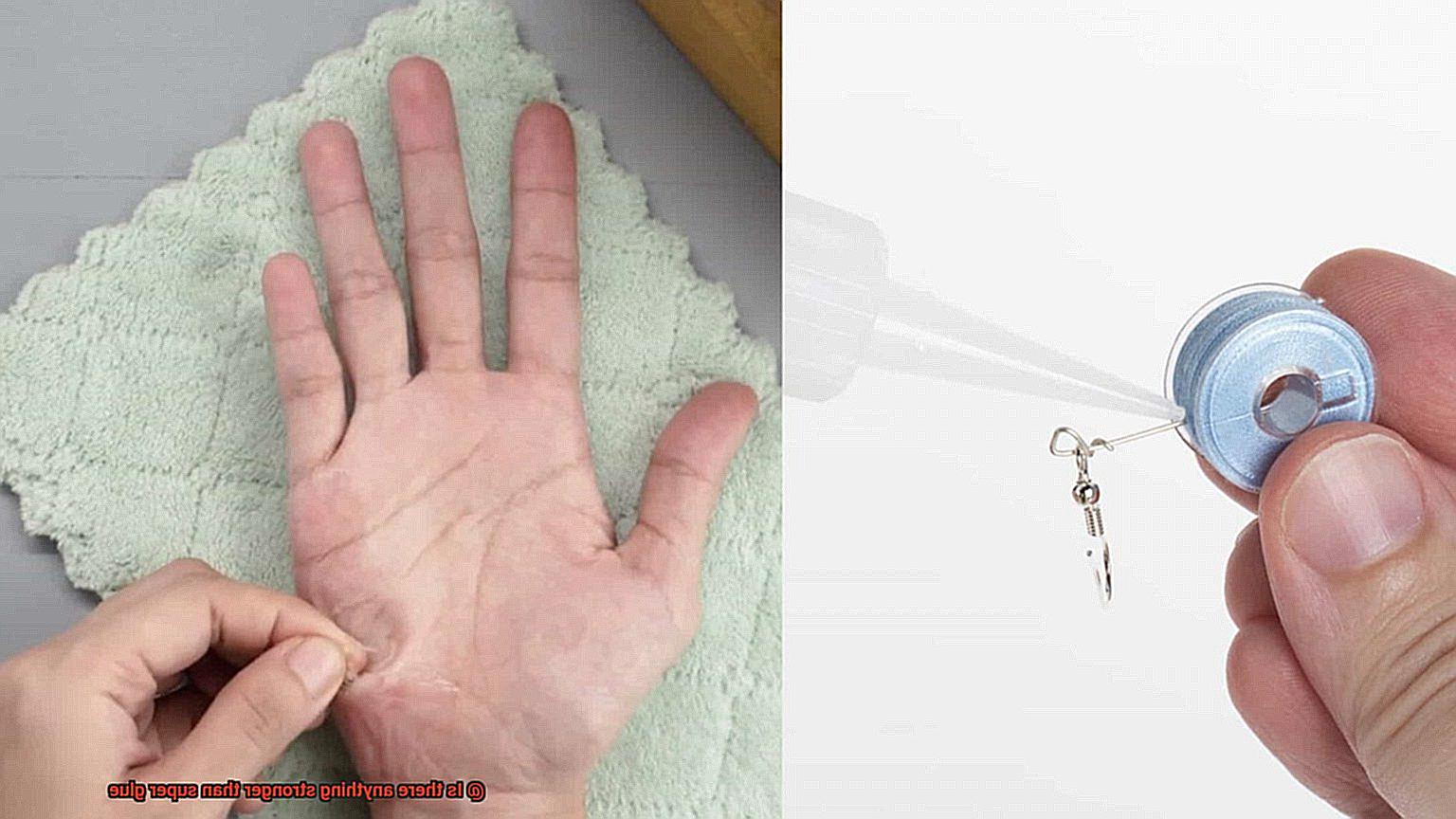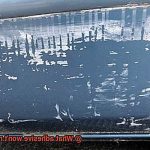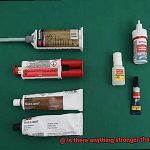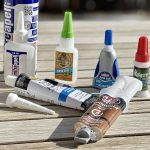Have you ever been in a situation where super glue just didn’t cut it? Maybe you were trying to fix a broken piece of furniture or repair a cracked window. While super glue can work wonders for small cracks or breaks, sometimes you need something stronger. So, is there anything stronger than super glue?
The answer is a resounding yes. There are alternatives that offer even more powerful bonds than super glue. One such option is epoxy, which consists of two parts – a resin and a hardener. When the components are combined, they create an incredibly strong and durable adhesive. Epoxy is often used in construction and manufacturing due to its ability to bond with various materials like metals, plastics, and wood.
Another option worth considering is polyurethane glue, also known as Gorilla Glue. This adhesive expands as it dries, filling in gaps and creating an incredibly strong bond that can withstand even the toughest conditions. It’s also water-resistant and can be used on various surfaces.
In this blog post, we’ll take an in-depth look at these alternatives to super glue and explore their unique strengths and weaknesses. Whether you’re working on a DIY project or tackling something more significant like home repairs or construction projects, we’ve got you covered.
So if you’re looking for something stronger than super glue for your next project, keep reading. We’ve got all the information you need to make an informed decision about which adhesive will work best for your needs.
Super Glue
Contents
- 1 Super Glue
- 2 What is Super Glue Used For?
- 3 Limitations of Super Glue
- 4 Adhesives That Are Stronger Than Super Glue
- 5 Benefits of Using Stronger Adhesives
- 6 Different Types of Materials That Require Stronger Adhesive Bonds
- 7 How to Choose the Right Type of Adhesive for Your Project
- 8 Tips for Using and Storing Stronger Adhesives
- 9 Conclusion
Super glue, also known as cyanoacrylate adhesive, is a versatile and widely used adhesive that has become a household name. This fast-acting adhesive was first discovered by Dr. Harry Coover in 1942 while he was working on creating clear plastic gun sights for the military during World War II. He found that the substance he was working with had strong adhesive properties and was capable of bonding a variety of materials together.
Super glue works by reacting with moisture in the air to create a strong, permanent bond. It is commonly used to bond materials such as plastic, metal, wood, and ceramics. In addition, super glue can also be used for medical purposes, such as closing wounds or fixing dental appliances.
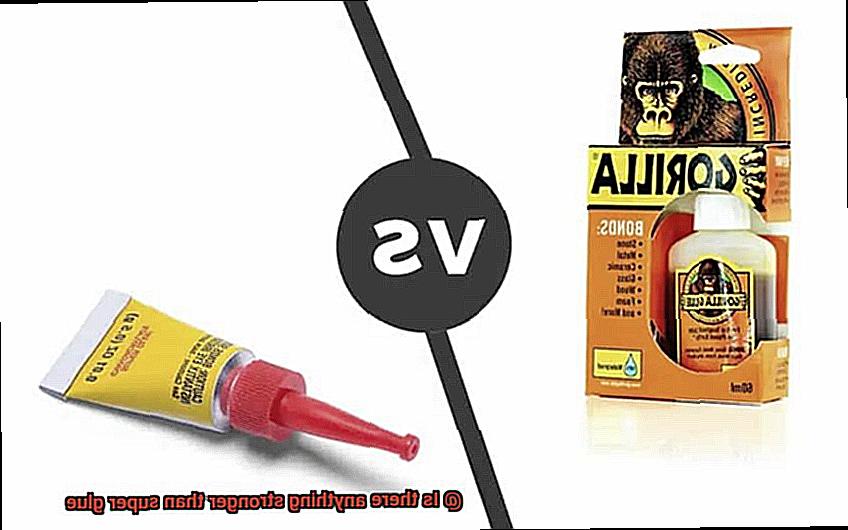
One of the advantages of super glue is its fast drying time. It sets in seconds and reaches full strength within a few hours, making it ideal for quick repairs or bonding tasks. However, it is important to note that super glue may not be suitable for use on certain materials such as rubber or silicone. Its bond may weaken when exposed to heat or moisture.
When it comes to bonding materials that require greater strength and durability, there are several other adhesives that are stronger than super glue. Epoxy is a two-part adhesive that consists of a resin and hardener which when mixed together create a strong bond that can withstand high stress and strain. This makes it ideal for bonding materials such as metal or wood. Polyurethane-based adhesives are also stronger than super glue and are resistant to water and heat. They have a chemical reaction that causes them to foam and expand, filling gaps and creating a strong bond.
Acrylic adhesives are also stronger than super glue, particularly when it comes to bonding plastics. They have a higher resistance to chemicals and can form a bond that can withstand extreme temperatures.
What is Super Glue Used For?
Super glue, or cyanoacrylate adhesive, is a versatile adhesive that has become increasingly popular in various industries. This fast-drying and strong adhesive can bond almost any material, making it a popular choice for assembling products, repairing broken items, and sealing certain materials in the manufacturing industry.
But did you know that super glue also plays an important role in the medical field? It is commonly used as a wound sealant, replacing traditional stitches or staples due to its quick-drying properties and ability to create a strong bond. This reduces the risk of infection and minimizes scarring, making it a valuable tool for healthcare professionals. Dentists also use it to fix broken teeth or attach dental implants.
For DIY enthusiasts, super glue is an essential tool for home repairs. Whether you need to fix broken household items like toys, jewelry, or even furniture, this adhesive can do the job. It is also perfect for craft projects like scrapbooking, model making, and jewelry making.
In the automotive industry, super glue has become a go-to adhesive for repairing cracks in windshields, attaching rearview mirrors, fixing dashboard components, and sealing minor leaks in engines or other automotive parts.
Limitations of Super Glue
This amazing adhesive has saved us from countless disasters, but like all things, it has its limitations too. As an expert in this field, allow me to take you through some of the limitations of super glue that you need to keep in mind.
First and foremost, super glue is not a one-size-fits-all solution. It may not work well on surfaces that are oily or greasy, and porous or textured materials may also pose a challenge. To ensure a strong bond that lasts longer, always make sure that the surface is clean and dry before applying super glue.
Secondly, while super glue is a fast-acting adhesive, it can be brittle and prone to cracking under stress. This means that it may not be suitable for applications where a strong, flexible bond is needed. If you’re working with materials that will be subjected to frequent bending or flexing, it’s better to look for alternative adhesives that offer greater flexibility.
Lastly, removing super glue can be a nightmare if you make a mistake or need to take something apart. While there are solvents and other methods available for removing super glue, they can be messy and time-consuming. So, make sure that you apply the glue correctly the first time around to avoid any issues down the line.
Adhesives That Are Stronger Than Super Glue
Sure, it’s a well-known and popular choice, but when you need an adhesive that can withstand higher levels of stress and tension, you need to consider other options.
First on the list is epoxy – a two-part adhesive consisting of a resin and hardener. When mixed together, the result is a bond that’s incredibly strong and durable. It can be used on a variety of materials, including metal, plastic, and wood, making it ideal for heavy-duty applications.
If you’re looking for an adhesive that’s similar to super glue but with a higher bonding strength, then cyanoacrylate glue is your answer. This glue bonds quickly and easily to a variety of materials, including ceramics, metals, and plastics. With its higher bonding strength, it’s perfect for those situations where super glue just won’t cut it.
For heavy-duty applications that require water resistance, polyurethane adhesive is the go-to option. This adhesive creates a bond that can withstand high levels of stress and tension while also being water-resistant. It’s versatile enough to be used on a variety of materials and is perfect for those projects where durability is key.
It’s important to remember that each adhesive has its own strengths and limitations. When choosing an adhesive, you need to consider the specific materials being bonded and the level of stress or tension the bond will need to withstand. By doing so, you can ensure that you choose the right adhesive for the job.
Epoxy
Super glue may be a popular choice for bonding materials, but epoxy is the true MVP in the world of adhesives. With its incredible strength and durability, epoxy is a go-to adhesive for industrial applications. It is made up of two parts – a resin and a hardener – that are mixed together to create a strong, chemical bond.
Epoxy has several advantages over super glue. First, it can withstand extreme temperatures and environmental conditions without breaking down or losing its adhesive properties. From high heat to cold temperatures and exposure to water and chemicals, epoxy won’t let you down when it comes to durability. This makes it an ideal choice for heavy-duty applications in construction, automotive, and aerospace industries.
Another advantage of epoxy is its ability to fill gaps and cracks in surfaces. Unlike super glue, which requires a tight fit between surfaces to create a strong bond, epoxy can be applied to uneven or porous surfaces and still create a strong hold. This makes it useful in repairing damaged objects or bonding irregularly shaped items together.
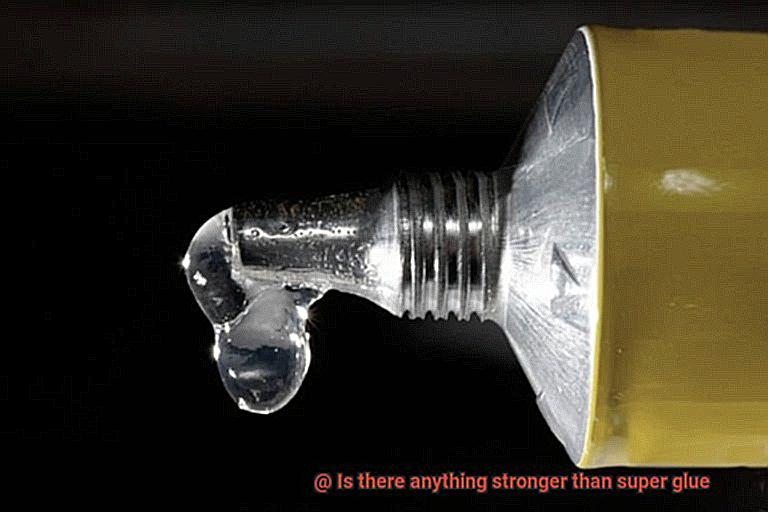
However, there are some drawbacks to consider when using epoxy. It can take longer to cure than super glue, sometimes requiring several hours or even days to fully cure. Additionally, epoxy can be more difficult to work with due to its thicker consistency and the need for precise mixing ratios between the resin and hardener.

Polyurethane-Based Adhesives
When it comes to adhesives, forget everything you know about super glue and epoxy – polyurethane-based adhesives are the new superhero in town. As an expert in this field, I can tell you that these adhesives are a popular choice for heavy-duty applications due to their superior bonding strength and durability.
One of the key advantages of polyurethane-based adhesives is their ability to create a strong chemical bond between two surfaces. This bond is much stronger than the physical bond created by super glue, making them ideal for construction and automotive industries where high levels of stress and strain are common. Additionally, these adhesives are incredibly versatile and can be used on a wide range of materials, including wood, metal, plastic, and ceramics. They also resist water, chemicals, and UV rays, making them perfect for outdoor applications.
Despite their many benefits, polyurethane-based adhesives do have some potential drawbacks. Firstly, they tend to be more expensive than super glue. Secondly, they take longer to dry and cure than super glue, which can be frustrating if you need a quick fix. Lastly, they can be messy to work with due to their expanding nature.
Acrylic Adhesives
When it comes to high-performance bonding applications, acrylic adhesives are a force to be reckoned with. These polymers offer superior bonding properties that make them an excellent alternative to super glue. Here’s why:
First and foremost, acrylic adhesives are known for their ability to withstand extreme temperatures and harsh conditions. Unlike super glue, they can endure exposure to water, chemicals, and UV rays. This makes them perfect for outdoor use and any application that requires durability.
Another advantage of acrylic adhesives is their versatility. They can bond a wide range of materials, including plastics, metals, ceramics, and composites. Whether you’re working on a DIY project or in the automotive or construction industry, these adhesives have got you covered.
Acrylic adhesives come in different forms to suit your specific needs. The liquid form is ideal for bonding large surfaces or creating fillets around edges or corners. The paste form is thicker and can be used to fill gaps or cracks in surfaces. The tape form is perfect for bonding flat surfaces quickly and easily.
While acrylic adhesives may come at a higher cost and take longer to dry and cure than super glue, they are worth every penny for projects that require a permanent and reliable bond. In fact, their strength and durability make them an excellent choice for applications where other adhesives simply won’t cut it.
Benefits of Using Stronger Adhesives
Not only are they known for their strength, but they also offer a range of benefits that weaker options simply can’t match.
First off, let’s talk about durability. Stronger adhesives, such as epoxy and cyanoacrylate (super glue), can withstand the wear and tear of everyday use. You won’t have to worry about your hard work falling apart because the bond will be long-lasting and reliable.
But that’s not all – stronger adhesives are also resistant to water and other liquids. Weak adhesives can break down when exposed to moisture, compromising the integrity of the bond. Stronger adhesives, on the other hand, are designed to resist these conditions and maintain their strength even in harsh environments.
Another great feature of stronger adhesives is their ability to fill gaps and cracks. This is particularly useful when working with uneven or irregular surfaces that may not fit together perfectly. The adhesive will help fill in any gaps, creating a strong bond that will hold up over time.
And let’s not forget about versatility. Stronger adhesives can be used for a wide range of applications. Epoxy, for example, can be used not only as an adhesive but also as a filler and coating. This makes it an ideal choice for projects where multiple functions are required.
Different Types of Materials That Require Stronger Adhesive Bonds
Adhesive bonding is a common method of joining materials together. However, not all materials are created equal and some require stronger adhesive bonds than others. In this article, we will explore the different types of materials that require stronger adhesive bonds than super glue.
Metals
Metal surfaces can be smooth and non-porous, making it difficult for traditional adhesives to form a strong bond. In these cases, epoxy or cyanoacrylate (super glue) may be used as they can provide a strong and durable bond. However, for heavier-duty applications or metals with oily surfaces, a stronger adhesive like epoxy is necessary. Epoxy is commonly used in the automotive and aerospace industries for bonding metal parts together.
Plastics
Plastic materials can be challenging to bond because they come in different compositions and surface energies. While super glue may work for small plastic pieces, larger or heavier ones may require a more robust adhesive like cyanoacrylate. For example, in the electronics industry, cyanoacrylate is often used to bond plastic components together.
Wood
Wood is a porous material that can absorb some adhesives, leading to weaker bonds. Additionally, wood expands and contracts with changes in temperature and humidity, which can cause the bond to weaken over time. That’s why woodworkers often choose stronger adhesives like polyurethane glue or epoxy for their projects. Polyurethane glue is particularly useful for outdoor furniture as it is waterproof and resistant to temperature changes.
Glass
Due to its smooth surface and non-porous nature, traditional adhesives may not be effective in forming a strong bond with glass. Super glue is not recommended for bonding glass as it can create a brittle bond that may break easily. In these cases, specialized glass adhesives such as UV-curing adhesive or silicone adhesive are often used to ensure a strong and durable bond.
Ceramics
Ceramics are notoriously difficult to bond due to their high surface energy and low porosity. Super glue is not recommended for ceramic bonding applications as it may not provide a strong enough bond. Instead, ceramic adhesives like epoxy or cyanoacrylate with added ceramic fillers are often used. These fillers enhance the adhesive’s ability to bond with ceramic surfaces.
How to Choose the Right Type of Adhesive for Your Project
Choosing the right adhesive for your project can make all the difference in achieving a successful outcome. Here are five key factors to consider when selecting the best adhesive for your needs.
Material Compatibility
Different adhesives are designed to work with specific materials, so it’s important to choose an adhesive that is compatible with the materials you are bonding together. For example, if you need to bond metal, you’ll want an adhesive that is specifically formulated for metal bonding.
Strength Requirements
Consider how strong of a bond you need for your project. While super glue is known for its strong bond, there are other adhesives that may be even stronger depending on the application. For industrial settings, epoxy adhesives are often used due to their ability to create a very strong bond between two surfaces.
Environmental Factors
Think about the environment in which your project will be exposed. Some adhesives may not hold up well in extreme temperatures or high levels of moisture. It’s crucial to choose an adhesive that is suitable for the environment your project will be in to ensure a long-lasting bond.
Drying Time
The drying time of an adhesive can also impact the success of your project. Some adhesives dry quickly, while others take longer to dry. If you need a quick bond, then a fast-drying adhesive may be the best option for you.
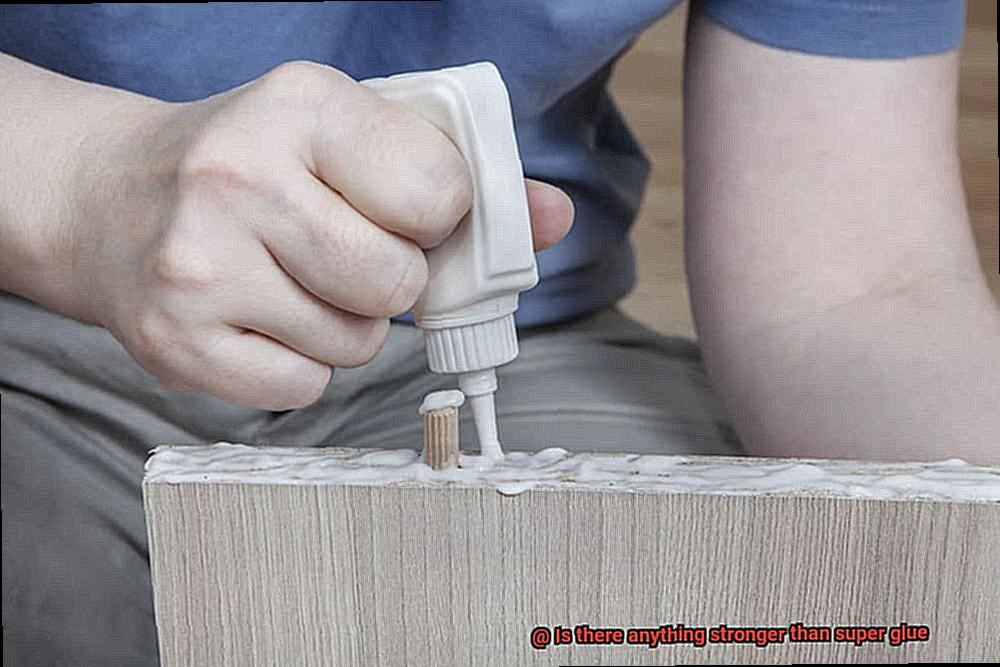
Safety Considerations
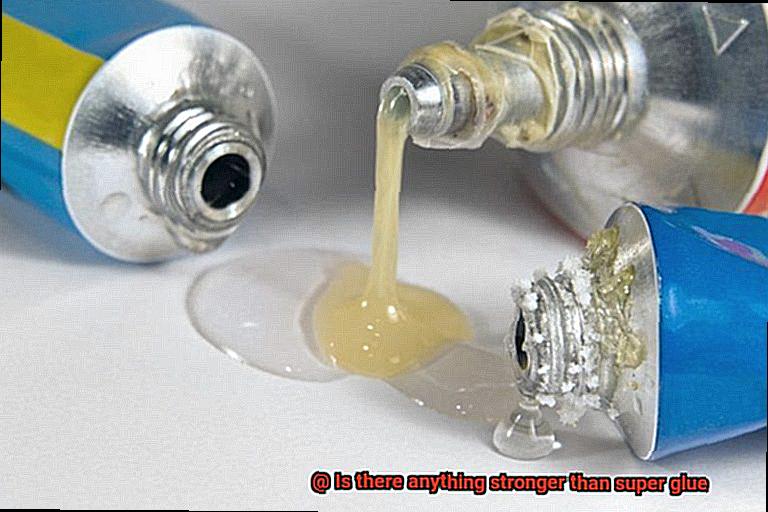
Lastly, it’s important to consider the safety of the adhesive you choose. Some adhesives contain harmful chemicals that can be dangerous if they come into contact with skin or eyes. Ensure you choose an adhesive that is safe to use and handle so you can complete your project without any safety concerns.
Tips for Using and Storing Stronger Adhesives
While these adhesives can be powerful and effective, they also require extra care and attention when it comes to using and storing them. Here are five sub-sections that will help you understand the tips and precautions necessary for using and storing stronger adhesives.
Read and Follow the Instructions Carefully
One of the most important tips for using and storing stronger adhesives is to read and follow the instructions provided by the manufacturer. Different types of adhesives require specific application techniques or surface preparation in order to work properly. Failure to follow these instructions may result in the adhesive not bonding as strongly as intended.
Choose the Right Adhesive for Your Materials
Another important consideration when using stronger adhesives is to select an adhesive that is compatible with the materials being bonded. Some materials, such as plastics or metals, may require a specific type of adhesive in order to form a strong bond. Using the wrong adhesive can result in weak bonds or even damage to your materials.
Store Adhesives Properly
Proper storage is crucial for maintaining the effectiveness of stronger adhesives. Many adhesives are sensitive to temperature and humidity, so they should be stored in a cool, dry place away from direct sunlight. Additionally, some adhesives may have a limited shelf life, so it is important to check the expiration date before use.
Use Protective Gear
When working with stronger adhesives, it’s important to use protective gear such as gloves or eye protection. Some adhesives may emit fumes or have skin irritants that can cause harm if not handled properly. Make sure to wear the appropriate protective gear to keep yourself safe while using these powerful adhesives.
Use Small Amounts
Stronger adhesives often require only a small amount to be effective. Applying too much can lead to excess glue that is difficult to remove. Make sure to use these adhesives sparingly and precisely to ensure a strong bond without any unnecessary mess.
Also Read: How Much Weight Can Hot Glue Hold?
Conclusion
When it comes to adhesive strength, super glue is one of the most reliable options on the market.
But what if you need something even stronger? While there are certainly alternatives available, such as epoxy or welding, they may not always be practical or accessible for every situation.
It’s important to consider the specific needs of your project and weigh the pros and cons of each option before making a decision.

